Permissive Parenting Child Outcomes Permissive Parents Are Low In Demandingness And High In Responsiveness.
Permissive Parenting Child Outcomes. Extreme Permissiveness Amounts To Le.
SELAMAT MEMBACA!
Permissive parenting is sometimes known as indulgent parenting.
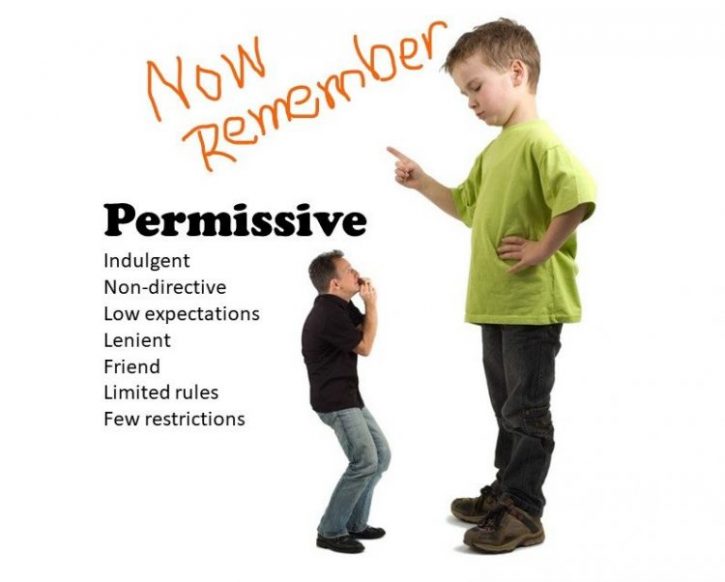
Researchers have found that the overly relaxed approach to parenting exhibited by permissive parents can lead to a number of negative outcomes.
Permissive parenting, also known as indulgent parenting, is a parenting style characterized by high responsiveness and low demandingness.
Permissive parents are very responsive to the child's emotional needs.
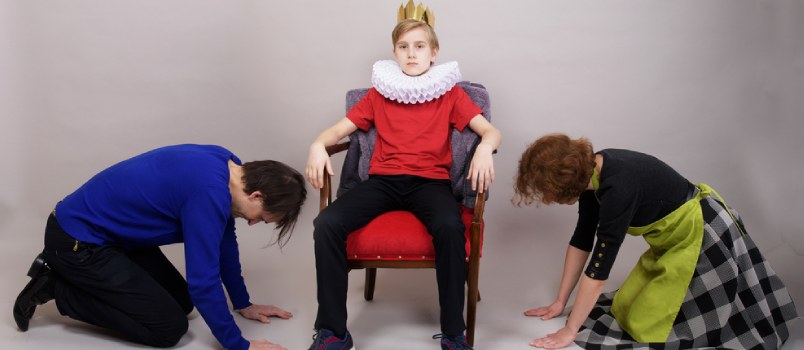
Permissive parents are highly responsive towards their children's needs and nurture their talents and personality.
You can understand the concept better with a few examples.
The permissive parenting style has been linked with optimal child outcomes, but it depends on how you define permissive. it promotes psychological development, and protects children from toxic stress.

Permissive parenting itself is not necessarily neglectful.
Those who practice permissive parenting do interact with and respond to their children.
Children and adolescents of authoritative parents are consistently described as most prosocial, academically and socially competent, and least symptomatic.

In permissive households, children are given the power to make big decisions which can, over time, leave children feeling burdened. permissive parenting frequently leads to one of two outcomes:
You end up with a child who suffers from anxiety due to a perceived lack of structure and support.
Effects of permissive parenting style.

Permissive parents are low in demandingness and high in responsiveness.
How raising children helps parents grow.
Observational skills sensativity to others behaviorefficientcy resiliency motivationsocial skills.

Most parents who practice permissive parenting tend to be kind and loving toward their kids, which is great!
But over time, the lack of boundaries and limits and though not identical, these similar styles of parenting, when implemented thoughtfully and on the right type of child, can have positive outcomes.
Parental permissiveness is the degree to which parents allow their children freedom to make decisions and take responsibilities for their lives.

Extreme permissiveness amounts to le.
Children who come from a permissive parenting situation are more likely to be aggressive, impulsive, and lack personal responsibility.
These are all of the bad outcomes of permissive parenting and the truth is that no one parenting style can eliminate all of the.
Permissive parents have a hard time setting limits with their children, says laura markham, ph.d., author of peaceful parent, happy kids.
Therefore, parents are more likely to ignore bad behavior.
Permissive parenting is a style of parenting that involves a very indifferent, indulgent or compliant attitude towards your children.

Permissive parents usually take on more of a friend role than a parent role.
They often encourage their children to talk with them about their problems, but they usually don't put much effort into discouraging poor choices or bad behavior.
The third style of parenting in which the children run the show and anything goes;

'permissive parents tend to be lovely, thoughtful, kind parents but they haven't learned to set boundaries that enable them to effectively discipline their child.' this parenting style tends to be the total opposite of 'helicopter parenting.' instead of hovering over their children's every move.
Seem more like a friend than a parent according to the research, an overly relaxed approach to parenting can lead to a number of negative outcomes.
Since children raised by permissive parents are not enforced any type of.
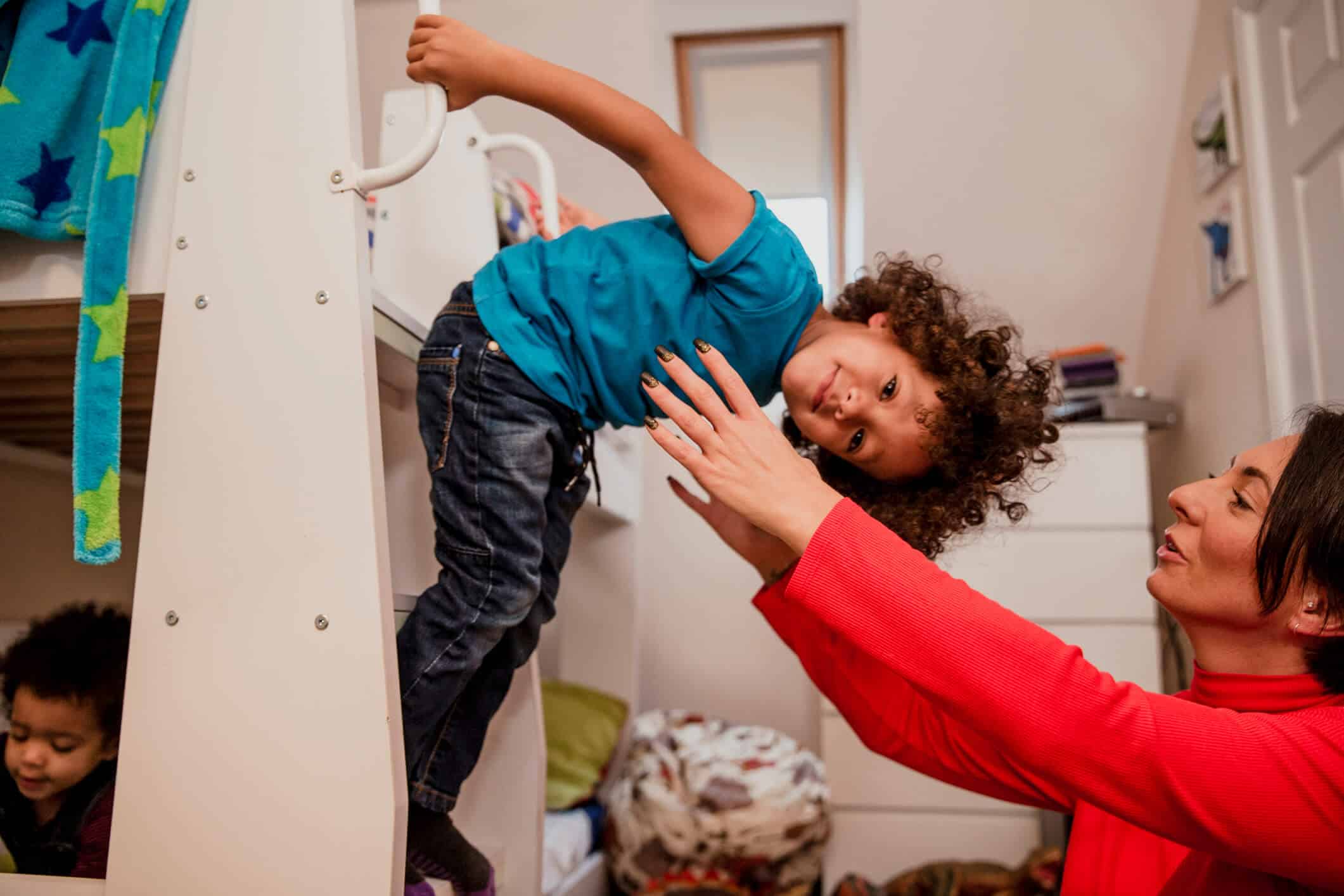
These parents are highly responsive to their children's needs (not a bad thing) but rarely set expectations or boundaries or push personal responsibility.
These parents are highly sensitive.
Children who are raised under permissive parenting style are more likely to engage in acts of misconduct.
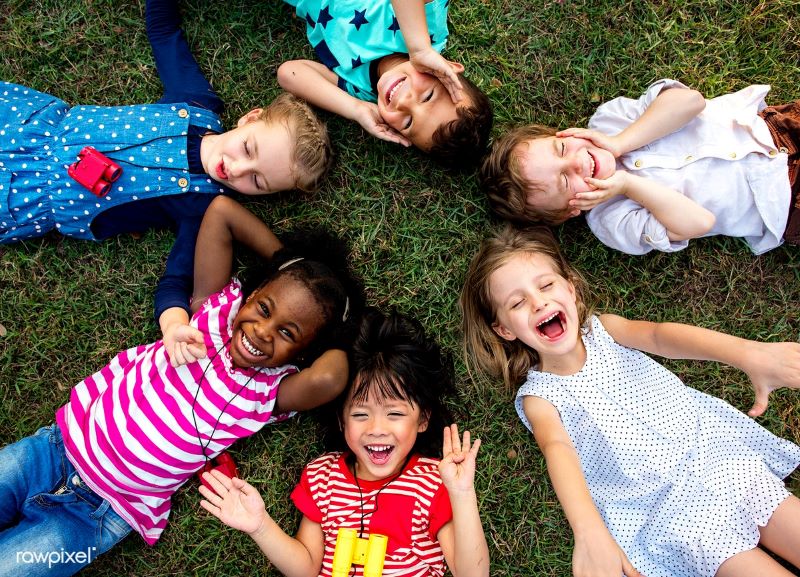
Authoritative parents are responsive to their children and willing to listen to questions.
When children fail to meet the expectations, these parents are more nurturing and forgiving rather than permissive parenting(too soft).
According to diana baumrind parenting styles. about.com psychology.
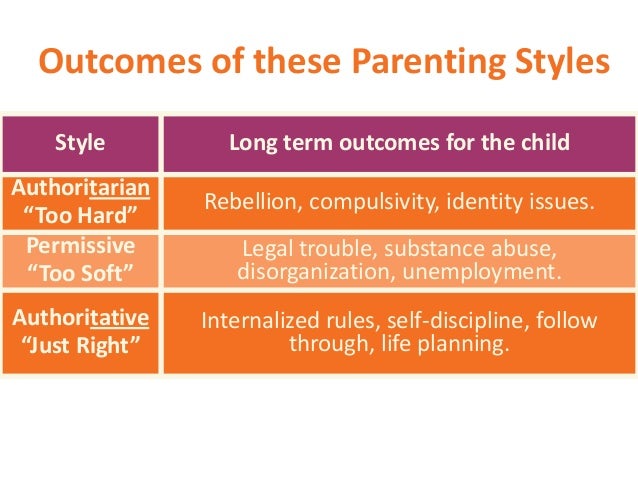
The data were garnered from interviews and observations.
This study revealed that the parents applied authoritarian, authoritative, and permissive parenting styles in.
Children whose parents have mostly used authoritative parenting tend to be healthy and permissive or indulgent parenting style.
Children are not allowed to question the parents.
Defying parents lead to terrible consequences like the kids being lectured, insulted, shamed or punished.
Permissive parents believe that stressing academic success is not good for children and that they should let children feel that learning is fun.
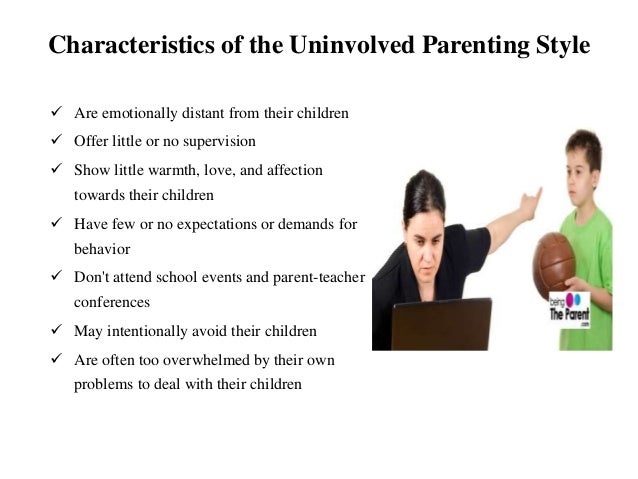
The quality of parenting can be more essential than the quantity of time spent with the child.
The permissive parenting style is an extremely relaxed approach where parents are generally warm, nurturing and affectionate.
However, they are overly accepting of their children's behaviour, good or bad.

Parenting or child rearing is the process of promoting and supporting the physical, emotional, social, and intellectual development of a child from infancy to adulthood.
Secure children show the best outcomes in virtually every area of development.
Awas, Bibit Kanker Ada Di Mobil!!Tak Hanya Manis, Ini 5 Manfaat Buah SawoSaatnya Minum Teh Daun Mint!!Asam Lambung Naik?? Lakukan Ini!! Ternyata Menikmati Alam Bebas Ada ManfaatnyaPD Hancur Gegara Bau Badan, Ini Solusinya!!Ternyata Merokok + Kopi Menyebabkan KematianTernyata Tidur Bisa Buat MeninggalTernyata Tertawa Itu DukaJam Piket Organ Tubuh (Paru-Paru)Parenting or child rearing is the process of promoting and supporting the physical, emotional, social, and intellectual development of a child from infancy to adulthood. Permissive Parenting Child Outcomes. Secure children show the best outcomes in virtually every area of development.
Permissive parenting is sometimes known as indulgent parenting.

Researchers have found that the overly relaxed approach to parenting exhibited by permissive parents can lead to a number of negative outcomes.
Permissive parenting, also known as indulgent parenting, is a parenting style characterized by high responsiveness and low demandingness.
Permissive parents are very responsive to the child's emotional needs.

Permissive parents are highly responsive towards their children's needs and nurture their talents and personality.
You can understand the concept better with a few examples.
The permissive parenting style has been linked with optimal child outcomes, but it depends on how you define permissive. it promotes psychological development, and protects children from toxic stress.

Permissive parenting itself is not necessarily neglectful.
Those who practice permissive parenting do interact with and respond to their children.
Children and adolescents of authoritative parents are consistently described as most prosocial, academically and socially competent, and least symptomatic.
/1095045-article-types-of-parenting-styles-5a7cb6aaa18d9e00362ef5eb.png)
In permissive households, children are given the power to make big decisions which can, over time, leave children feeling burdened. permissive parenting frequently leads to one of two outcomes:
You end up with a child who suffers from anxiety due to a perceived lack of structure and support.
Effects of permissive parenting style.

Permissive parents are low in demandingness and high in responsiveness.
How raising children helps parents grow.
Observational skills sensativity to others behaviorefficientcy resiliency motivationsocial skills.

Most parents who practice permissive parenting tend to be kind and loving toward their kids, which is great!
But over time, the lack of boundaries and limits and though not identical, these similar styles of parenting, when implemented thoughtfully and on the right type of child, can have positive outcomes.
Parental permissiveness is the degree to which parents allow their children freedom to make decisions and take responsibilities for their lives.
/2794957-what-is-permissive-parenting-5b2c035943a103003654116b.png)
Extreme permissiveness amounts to le.
Children who come from a permissive parenting situation are more likely to be aggressive, impulsive, and lack personal responsibility.
These are all of the bad outcomes of permissive parenting and the truth is that no one parenting style can eliminate all of the.

Permissive parents have a hard time setting limits with their children, says laura markham, ph.d., author of peaceful parent, happy kids.
Therefore, parents are more likely to ignore bad behavior.
Permissive parenting is a style of parenting that involves a very indifferent, indulgent or compliant attitude towards your children.

Permissive parents usually take on more of a friend role than a parent role.
They often encourage their children to talk with them about their problems, but they usually don't put much effort into discouraging poor choices or bad behavior.
The third style of parenting in which the children run the show and anything goes;

'permissive parents tend to be lovely, thoughtful, kind parents but they haven't learned to set boundaries that enable them to effectively discipline their child.' this parenting style tends to be the total opposite of 'helicopter parenting.' instead of hovering over their children's every move.
Seem more like a friend than a parent according to the research, an overly relaxed approach to parenting can lead to a number of negative outcomes.
Since children raised by permissive parents are not enforced any type of.

These parents are highly responsive to their children's needs (not a bad thing) but rarely set expectations or boundaries or push personal responsibility.
These parents are highly sensitive.
Children who are raised under permissive parenting style are more likely to engage in acts of misconduct.
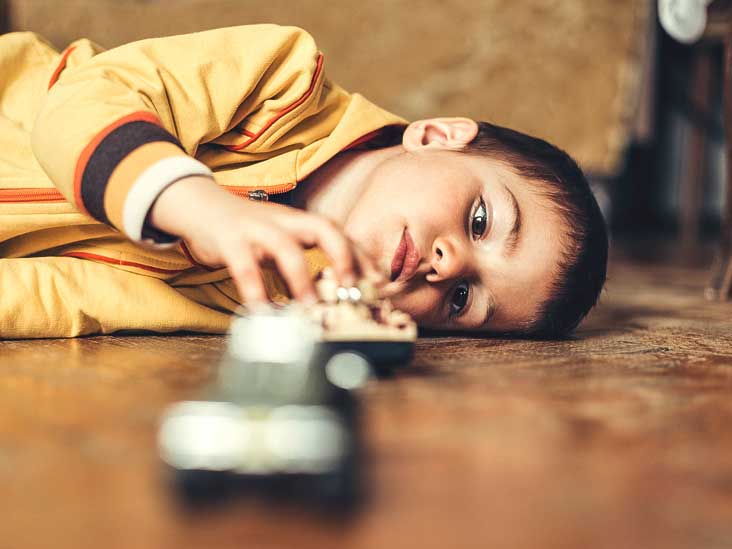
Authoritative parents are responsive to their children and willing to listen to questions.
When children fail to meet the expectations, these parents are more nurturing and forgiving rather than permissive parenting(too soft).
According to diana baumrind parenting styles. about.com psychology.

The data were garnered from interviews and observations.
This study revealed that the parents applied authoritarian, authoritative, and permissive parenting styles in.
Children whose parents have mostly used authoritative parenting tend to be healthy and permissive or indulgent parenting style.
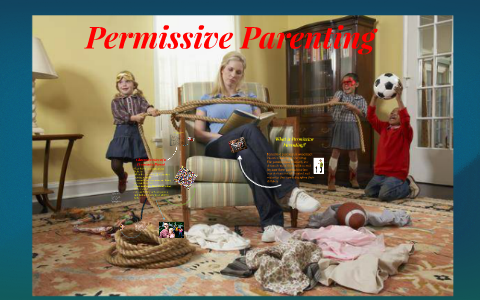
Children are not allowed to question the parents.
Defying parents lead to terrible consequences like the kids being lectured, insulted, shamed or punished.
Permissive parents believe that stressing academic success is not good for children and that they should let children feel that learning is fun.
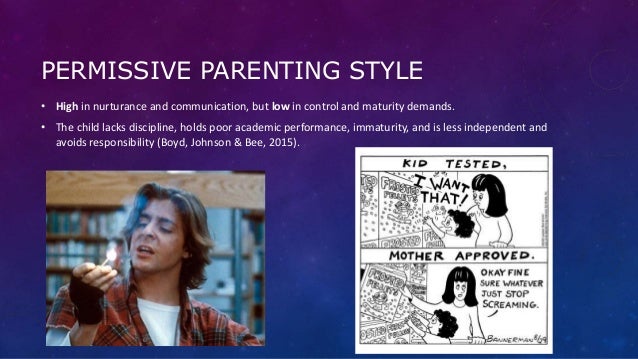
The quality of parenting can be more essential than the quantity of time spent with the child.
The permissive parenting style is an extremely relaxed approach where parents are generally warm, nurturing and affectionate.
However, they are overly accepting of their children's behaviour, good or bad.

Parenting or child rearing is the process of promoting and supporting the physical, emotional, social, and intellectual development of a child from infancy to adulthood.
Secure children show the best outcomes in virtually every area of development.
Parenting or child rearing is the process of promoting and supporting the physical, emotional, social, and intellectual development of a child from infancy to adulthood. Permissive Parenting Child Outcomes. Secure children show the best outcomes in virtually every area of development.3 Jenis Daging Bahan Bakso TerbaikTrik Menghilangkan Duri Ikan BandengFoto Di Rumah Makan PadangResep Ramuan Kunyit Lada Hitam Libas Asam Urat & Radang5 Makanan Pencegah Gangguan Pendengaran7 Makanan Pembangkit LibidoSejarah Prasmanan Alias All You Can EatTernyata Kamu Baru Tau Ikan Salmon Dan Tenggiri SamaBakwan Jamur Tiram Gurih Dan NikmatResep Cumi Goreng Tepung Mantul
Komentar
Posting Komentar